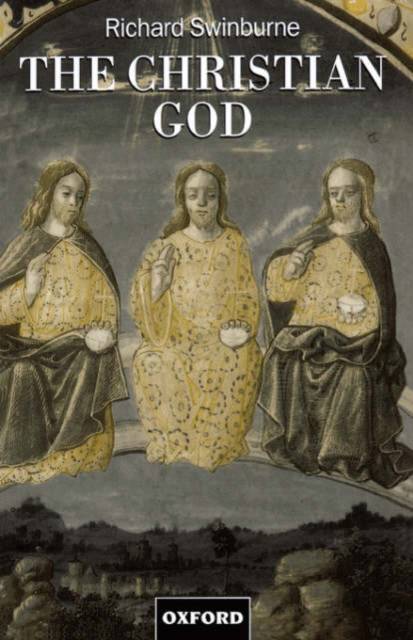
Bedankt voor het vertrouwen het afgelopen jaar! Om jou te bedanken bieden we GRATIS verzending (in België) aan op alles gedurende de hele maand januari.
- Afhalen na 1 uur in een winkel met voorraad
- In januari gratis thuislevering in België
- Ruim aanbod met 7 miljoen producten
Bedankt voor het vertrouwen het afgelopen jaar! Om jou te bedanken bieden we GRATIS verzending (in België) aan op alles gedurende de hele maand januari.
- Afhalen na 1 uur in een winkel met voorraad
- In januari gratis thuislevering in België
- Ruim aanbod met 7 miljoen producten
Zoeken
Omschrijving
What is it for there to be a God, and what reason is there for supposing him to conform to the claims of Christian doctrine? In this pivotal volume of his tetralogy, Richard Swinburne builds a rigorous metaphysical system for describing the world, and applies this to assessing the worth of the Christian tenets of the Trinity and the Incarnation. Part I is dedicated to analyzing the categories needed to address accounts of the divine nature--substance, cause, time, and necessity. Part II begins by setting out, in terms of these categories, the fundamental doctrine of Western religions--that there is a God. After pointing out some of the different ways in which this doctrine can be developed, Swinburne spells out the simplest possible account of divine nature. He then goes on to clarify the implications of this account for the specifically Christian doctrines of the Trinity (that God is "three persons in one substance") and of the Incarnation (that God became incarnate in Jesus Christ). Swinburne finds that there are good reasons to believe the Christian additions to the core Western idea of God. The Christian God builds upon Swinburne's acclaimed previous work to form a self-contained text which will no doubt become a classic in the philosophy of religion.
Specificaties
Betrokkenen
- Auteur(s):
- Uitgeverij:
Inhoud
- Aantal bladzijden:
- 276
- Taal:
- Engels
Eigenschappen
- Productcode (EAN):
- 9780198235125
- Verschijningsdatum:
- 24/11/1994
- Uitvoering:
- Paperback
- Formaat:
- Trade paperback (VS)
- Afmetingen:
- 138 mm x 216 mm
- Gewicht:
- 358 g

Alleen bij Standaard Boekhandel
+ 222 punten op je klantenkaart van Standaard Boekhandel
Beoordelingen
We publiceren alleen reviews die voldoen aan de voorwaarden voor reviews. Bekijk onze voorwaarden voor reviews.









